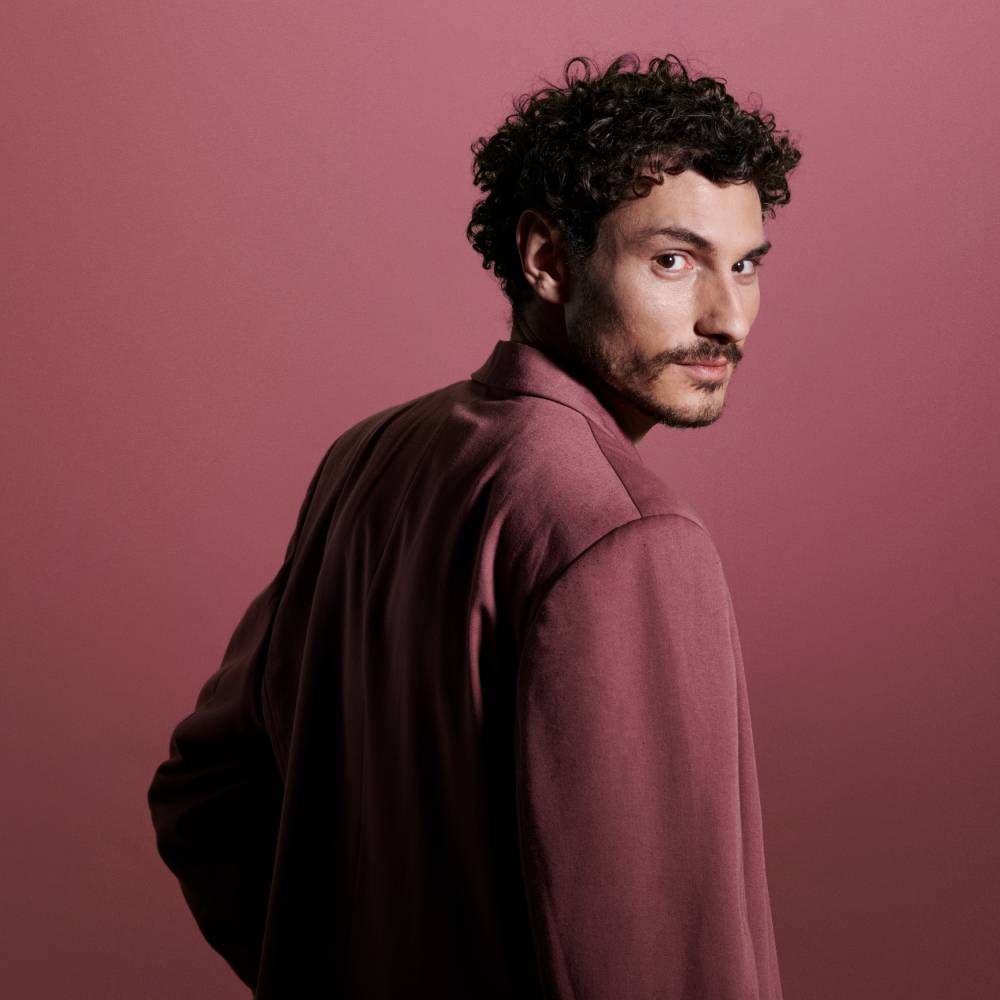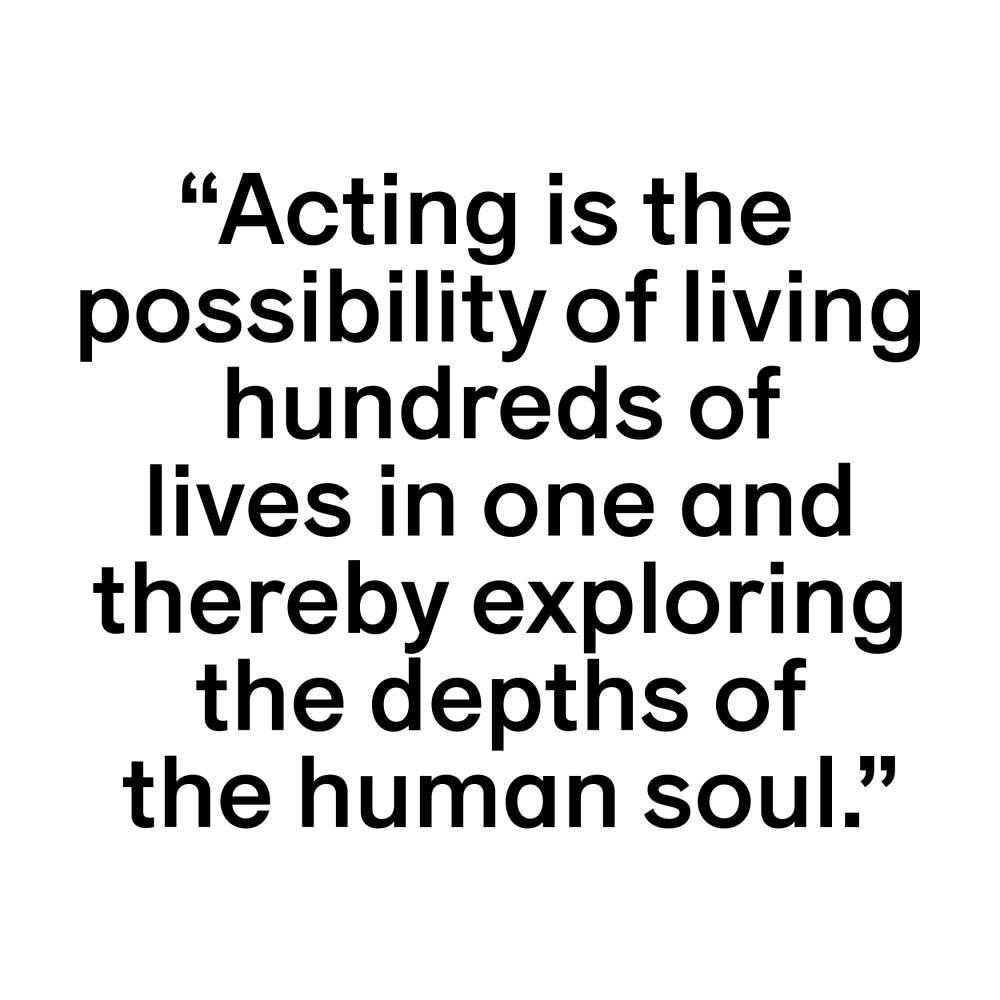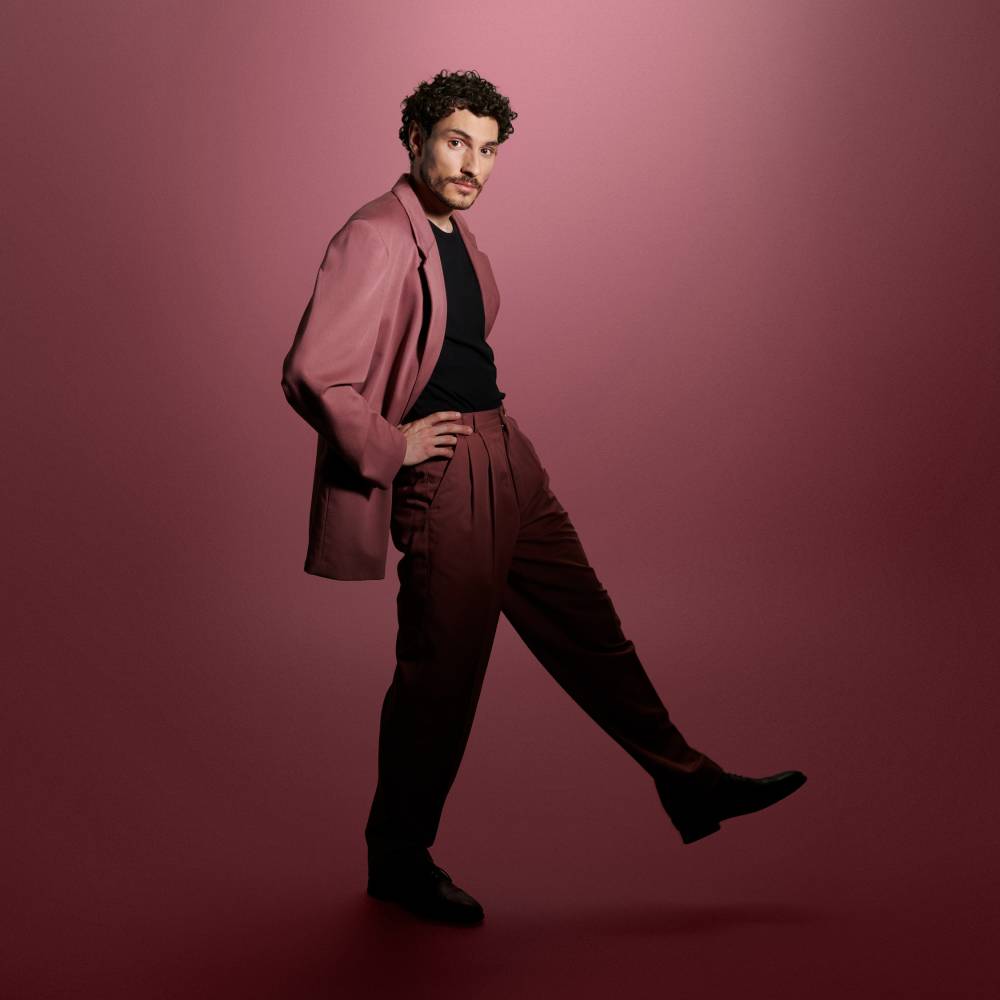Beyond the Screen
Nicola Perot on acting and seven aces
19.09.2024
A polyglot, Nicola Perot played the international card from an early age. His most recent roles were in Finnish and French films. An interview about the lottery of acting, his fascination with languages and his roles in series.



You made your Scandinavian film debut with EARTH SONG AND MINÄ SANOIN, SINÄ SANOIT. How does it feel to act in Finnish?
On the one hand, it's gratifying to master a newly-learned language to the point where you can act without restriction in front of the camera, but on the other hand, it's a challenge, because a language as complex as Finnish cannot be mastered without an excellent preparation beforehand.
Do Swiss German and Finnish have anything in common?
Apart from the fact that it is spoken by very few people in the world, there are no linguistic similarities. The parallels concern the desire to reinforce and preserve a cultural and linguistic identity through films and series.
How did your career progress from the national to the international stage? Was it difficult to get your foot in the door?
I realised early on that the Swiss market was too small for my Swiss-Italian profile, so I opted for the international card. An education in London, a move to Paris and seven languages as assets. Of course, nobody was expecting me. But that also had a liberating effect and encouraged me to find my own way in the mass of other actors.
What is it like to work and live as an actor in Helsinki?
It's exotic! There are few foreign actors and even fewer who speak Finnish. The film industry isn't very big, but it's much more than just a ‘Kaurismäki factory’. Nevertheless, for me, the Finnish market remains a niche and the reasons I have for living in Helsinki are, among others, private.
Have auditions and castings moved more into the digital space?
Absolutely! It's an evolution that I welcome, and not just from an ecological point of view. I no longer have to travel for hours for each initial casting to give a first impression, but I can offer the directors an interpretation of the character on video, so that they can see if a collaboration is possible. The ‘real’ meetings with the directors and casters continue to take place, and they are generally richer because a common interest already exists.
You took part in the Swiss series EN EAU SALÉE, produced by Britta Rindelaub for RTS. What impressions did it leave on you?
To be part of a drama on the high seas in the deafening noise of the engine room of a moving container ship. Where a wonderful cast and an excellent director, mingled with the ship's actual crew, braved the confined space and capricious Basque weather to tell a complex and tangled story. These were moments that made me realise what a privilege it is to work in the most beautiful profession in the world.
What attracts you to series? EN EAU SALÉE is already your seventh.
In a series, the actor that I am often has more space to develop his characters. I like the idea that viewers can follow my character through several episodes and seasons and learn to love or hate him. Whether he is a main or secondary character is often secondary. What's more, even as an actor, I don't know, at the start of a series, where the path is going to take me. That uncertainty attracts me. However, I aspire to a balance between film and series work, because I don't want to give up either of these two art forms.
Is it easier to be a Swiss actor on the foreign market than on the domestic market?
It's difficult to compare. To get a role, the paths are shorter in Switzerland, but the offer is more limited. Abroad, it took me longer to establish a network, but I benefit from more castings. During filming, the work is very similar once you get used to the cultural specificities of each country.
Which agencies do you work with?
I'm currently working with my German agent Georg Georgi (Das Imperium).
Which producer would you like to play with once?
I am a big fan of Alice Rohrwacher's films, which are notably produced by Carlo Cresta-Dina. When I shot ATLAS by Niccolò Castelli, he was the Italian co-producer. I really like his taste in cinema and I would be delighted to be able to work with him one day as lead producer in Italian, my mother tongue.
How did you get into acting?
In the neighbouring village, there was a theatre for young people, run by Tomas Wullschleger. An artist and excellent musician whose theatrical visions encouraged the searching teenager in me to push back the boundaries, and offered the play-hungry child in me a safe place to let off steam. This collaboration was the cornerstone of my artistic activity. Then, very early on, I had the opportunity to take part in two films (TUTTI GIÙ, BOYS ARE US). These two experiences definitively confirmed my desire to become an actor.
You have acted in French, Finnish, Italian and German films. How do you find the right accent? Is a Swiss note desired all ?
It depends a lot on the role and the project. Sometimes, I can rely on my linguistic and accentual repertoire and, in some cases, I have to learn new things. In major international series, I am usually accompanied by accent coaches who also work on the details between takes. Unfortunately, I haven't yet had a project where a Swiss note was explicitly desired. Perhaps the Swiss accent is still too little known in other languages (with the exception of German).
What are your future projects?
There is still a lot to be done for the big roles. The current crisis in the (foreign) film industry requires patience. The projects I am involved in are waiting for green lights and funding. I hope the industry recovers before actors and actresses are being replaced by artificial intelligence!